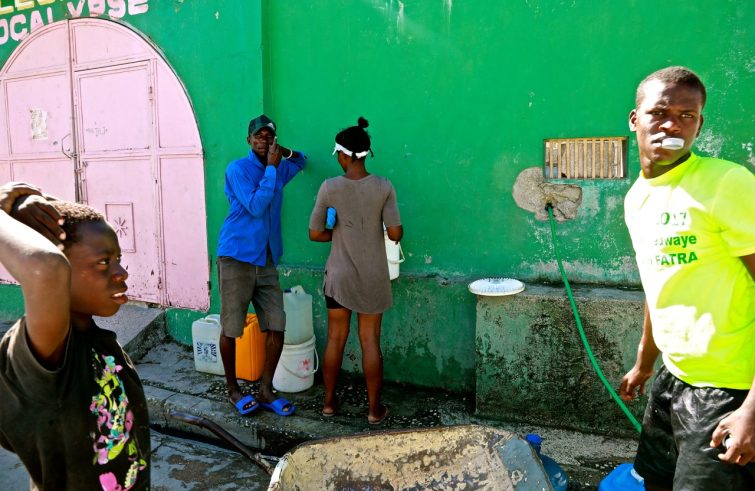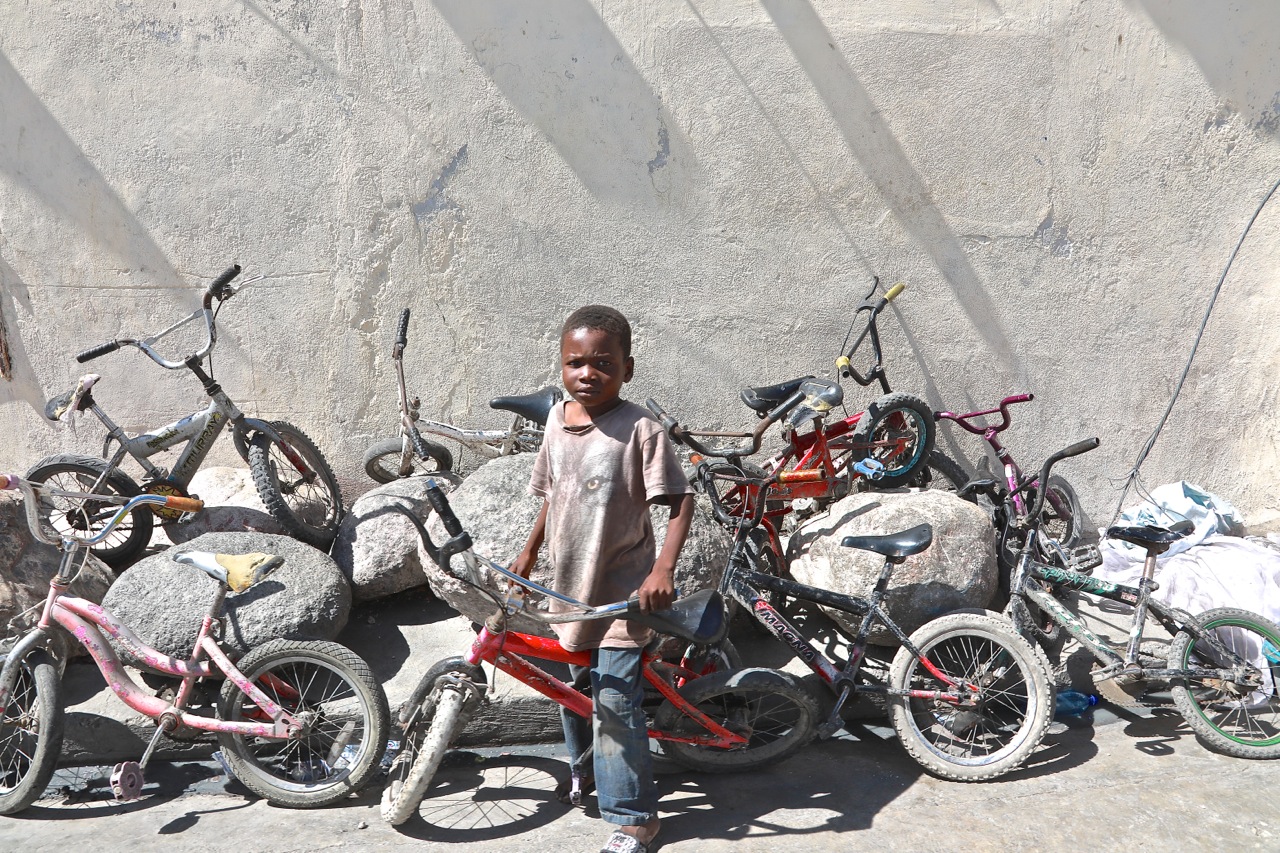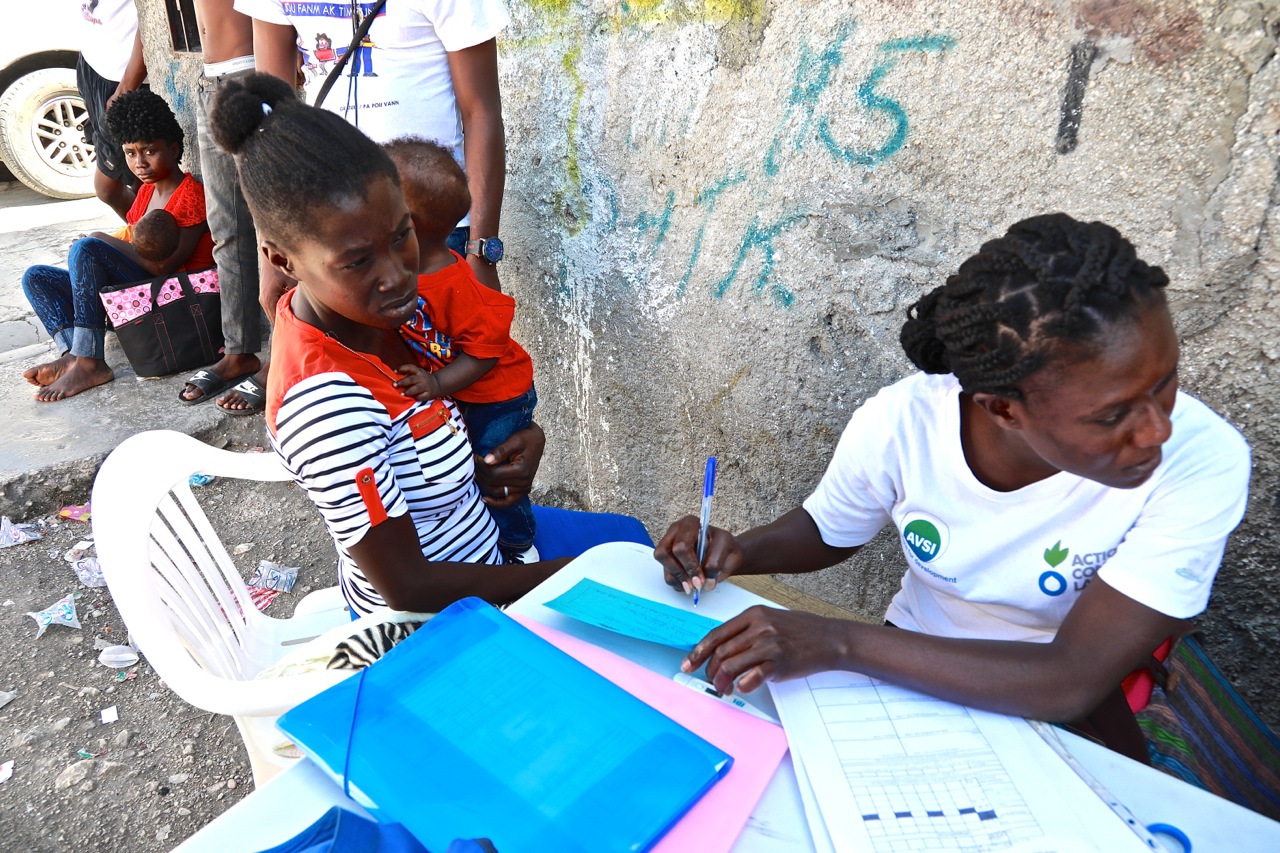
Haiti is once again facing a state of chaos as a result of the violence perpetrated by gangs that have seized control of 80% of the capital Port-au-Prince, and of other central and northern parts of the country, where the situation has spiralled out of control. This state of uncertainty is characterised by unusual peaks of tension. A plane was hit by gunfire, aid workers’ ambulances have been attacked, the airport is closed, and there is no viable means of departing the country with a Haitian passport. Médecins Sans Frontières has ceased operations, and UNICEF reports that the number of children recruited by gangs in Haiti has surged to 70%. “The schools have to interrupt their activities in the middle of the day, which makes it much more difficult to work. Classes start only to be interrupted and then resumed. Kidnappings continue, including of children. And there are more kidnappings in the period before Christmas because they need more money.” Flavia Maurello, AVSI Foundation’s country representative in Haiti, spoke to SIR about the situation in Port-au-Prince. “Before, gangs were mainly concentrated in poor neighbourhoods, but now they have turned against the entire population,” she says, highlighting a new and very dangerous dynamic. “They are trying to take control of more neighbourhoods and expand into the city. Increasing numbers of citizens are forming self-defence groups in the various communities situated between the gangs’ territories and the last conquerable zone of Pétionville.
The biggest fear now is that this could escalate into a civil war.”
More than 41,000 people have been forced to flee their homes in recent days due to growing violence and insecurity, marking the worst displacement since January 2023. Some 700,000 people have been displaced in the last two years, including an estimated 365,000 children, with little access to drinking water, food or health care. The latest clashes, which erupted on 11 November, have left over 4,500 dead and 2,000 injured. There are shortages of basic goods, food and fuel. Last March, gang violence forced the resignation of Prime Minister Ariel Henry, and now, following the failure of the Transitional Presidential Council, gangs grouped under the umbrella of ‘Vivre Ensemble’ have announced their intention to “take the country’s destiny into their own hands.” Haiti has not had an elected president since 2021, when President Jovenel Moïse was assassinated. Elections were last held in 2016 and the parliament was dissolved.
Nowhere is safe. “In March, the objective was to replace the outgoing prime minister and form a new government, but this time the objective is not very clear,” says Maurello, before setting off in her car for the Cité Soleil area for local work on the ground. Without armed guards or armoured vehicles, the drive from the lower district of Pétionville, where the head office is located, is very dangerous. AVSI is working with young boys and girls in a number of local communities to create “alternative spaces of peace”, with “oratory-style” animation and after-school activities. School reintegration programmes are in place for displaced children.
“There is no safe place left, not even the church is considered a safe place. There are too many alarm bells ringing.”
Sometimes the nights are sleepless: “Last night they tried to attack an area close to us and they opened fire all night long, including with explosions and Molotov cocktails. In March we never slept, as shooting continued in every neighbourhood.”

There is evidence that gang recruitment of teenagers is on the rise: “We see more and more armed youths on the streets.
As well as many more children recruited by gangs.
Because a child attracts less attention than an adult, they are used to perform other services, such as being lookouts, delivering food to the kidnapped and running small errands.”
Furthermore, “kidnappings continue, including of children and adolescents: there are no more limits. This is especially true of some groups that are more extremist than others. The Christmas period has always been the month of kidnappings, because the gangs need money before the holidays.” At present, she repeats,
“These dynamics seem aimed at sparking clashes between residents and gangs.”
AVSI bases the safety of its activities on the trust and acceptance of the communities it has been working with for almost 20 years. The team is made up of locals who live in the neighbourhoods, it comprises social workers and psychologists who deal with the most difficult cases. “We run many mobile clinics, especially for pregnant women and children under five who show signs of malnutrition.
UN and Kenyan military contingent. Meanwhile, there has been some controversy over the UN’s announcement of cuts in staff numbers as a result of the violence. But in fact, says Maurello, “this is a standard UN procedure to relocate non-essential staff in the event of increased insecurity. In March, we took the same precautions.” At the moment, however, no NGO in the country is considering this course of action. There is also a contingent of soldiers in Haiti, sent from Kenya with a mandate to back up the Haitian police. “They are few, not enough,” she said, “and they have no mandate to intervene, as desired, for example, by the Dominican Republic, which is keeping its border with Haiti closed, and is demanding a peacekeeping mission.”.

Is it in anyone’s interest for Haiti to remain rooted in instability and insecurity? “I don’t know whose,” she replies, “certainly it is the interest of those who exploit the situation of instability to do business. And for sure no weapons are manufactured locally. Instead, she says, “what’s needed now is to move towards a democratic electoral process to stabilise the country. As long as there is no legitimate authority, all these transitional governments will continue to fail. Nevertheless,
“peace seems to be an ever more distant goal. It will surely only come in a couple of years”.
The hope is for less violence and more aid routes: “We hope that gang violence in Port au Prince will be curbed,” concludes Maurello, “but also that supply routes to the country’s suburbs, lacking basic goods and fuel, will be opened. We have other ongoing initiatives in the south and north, and it is very difficult to support our local teams. We hope that we will at least be able to return to operating under normal conditions.”










